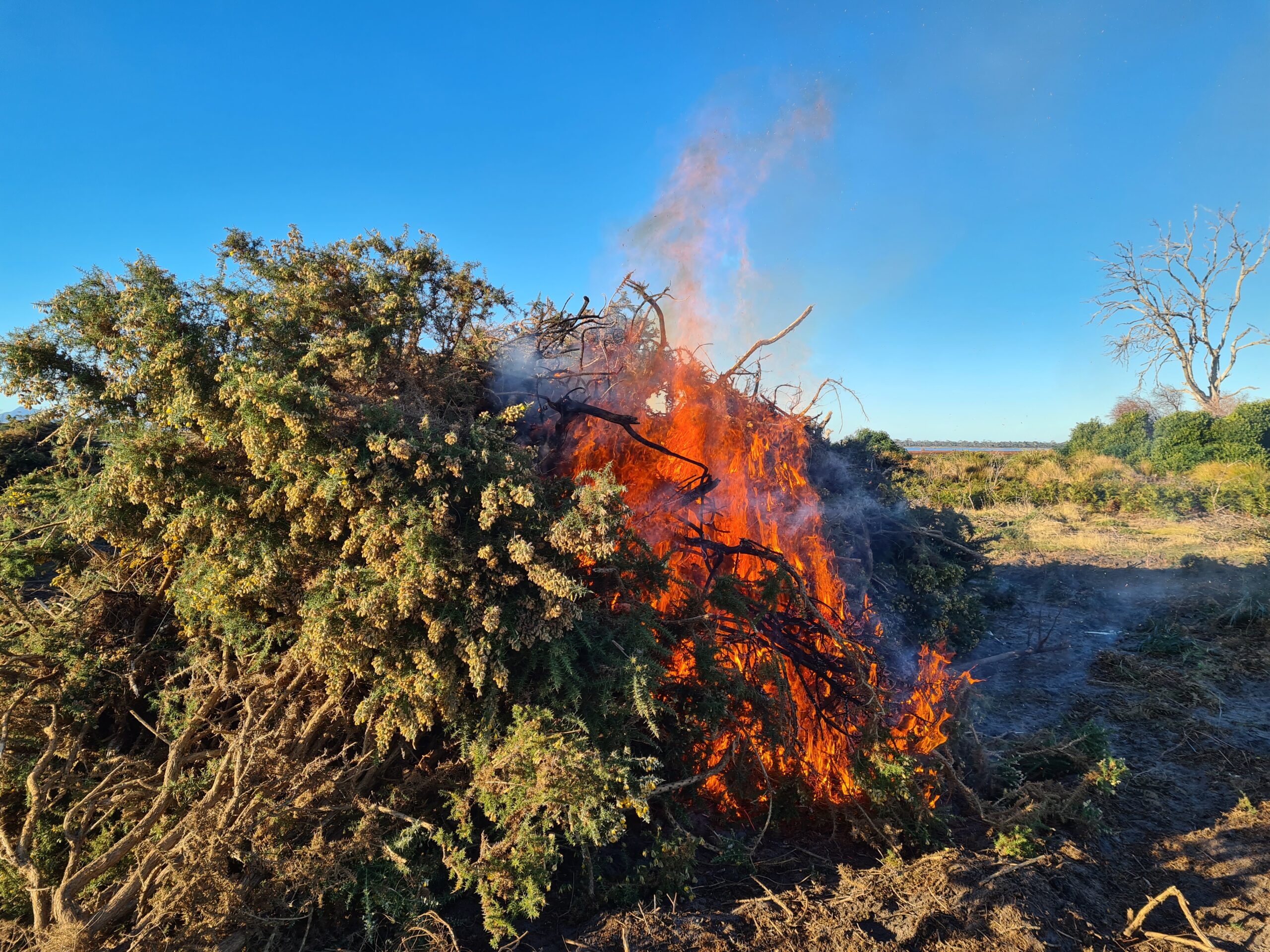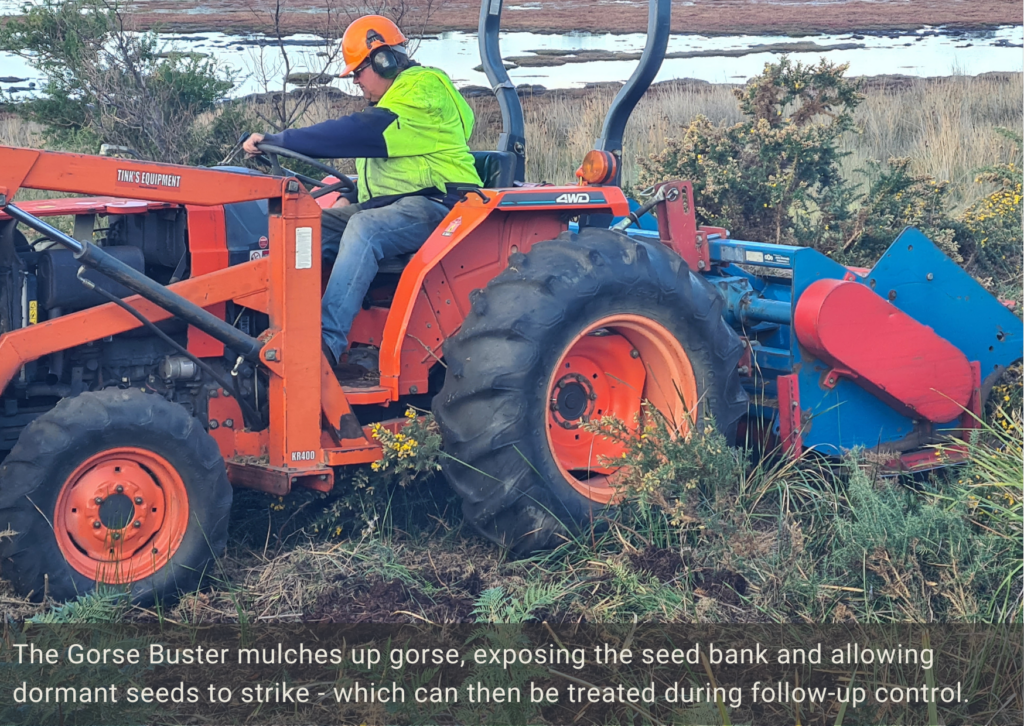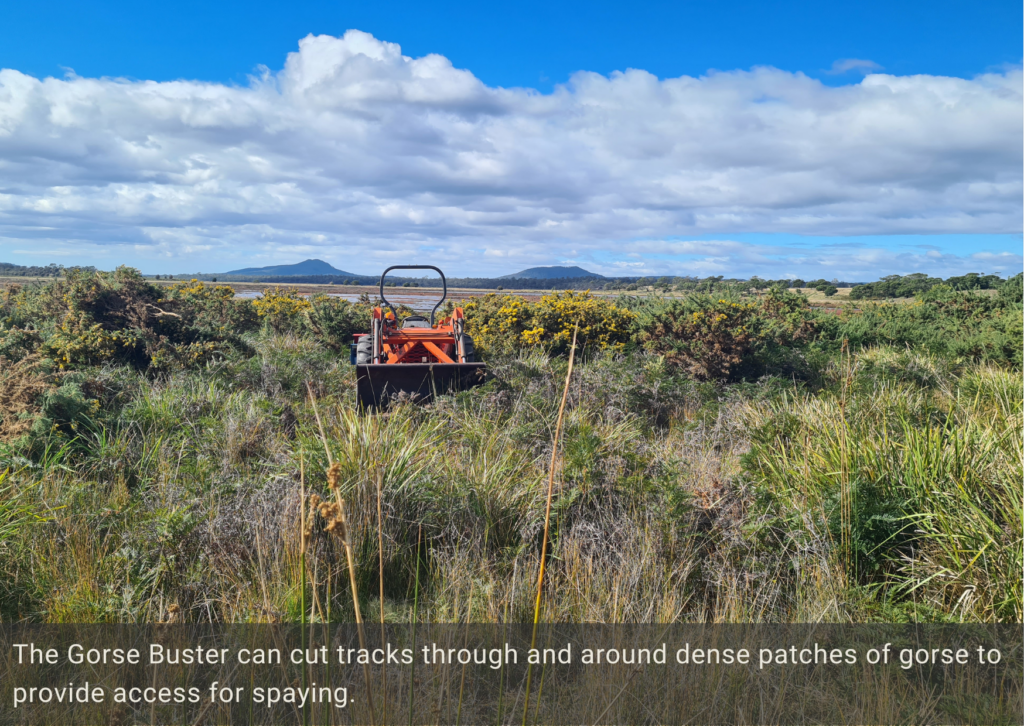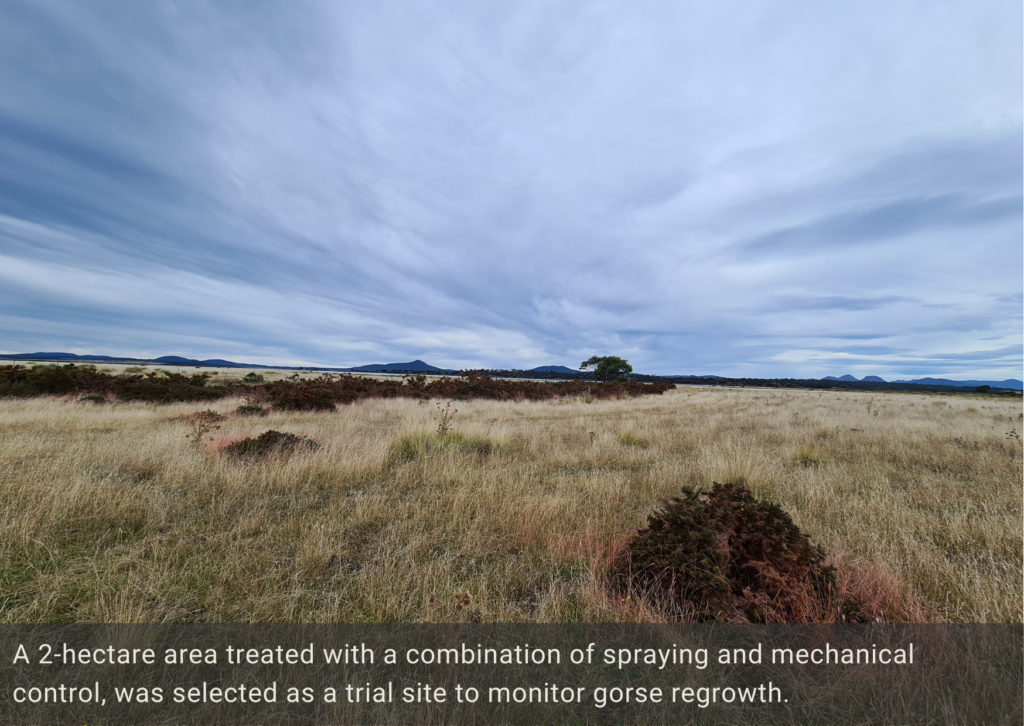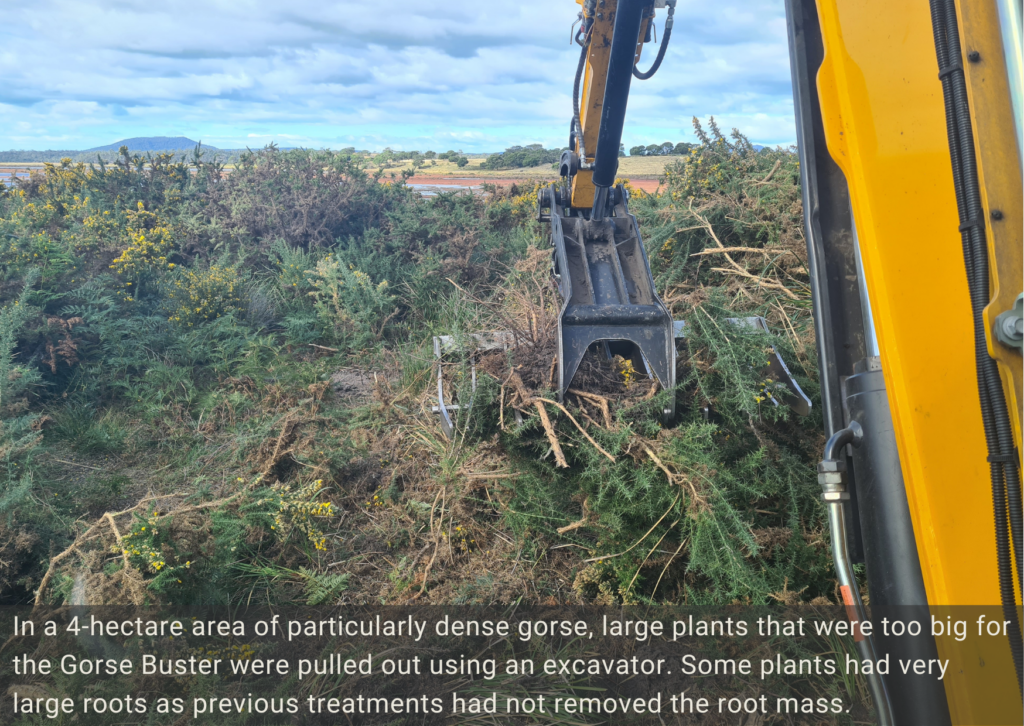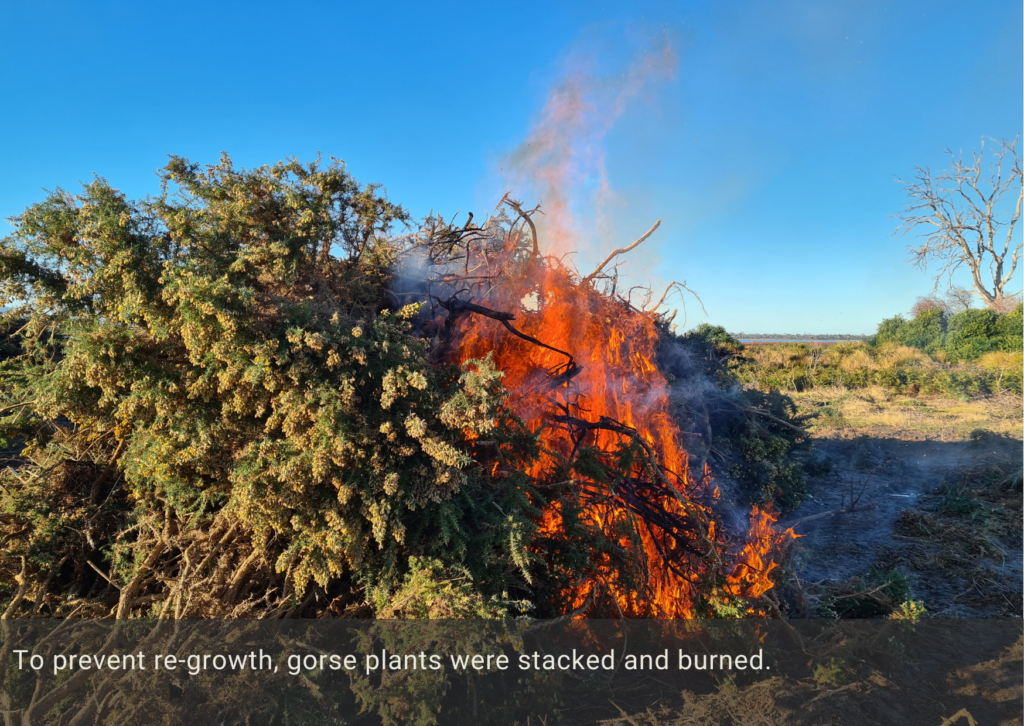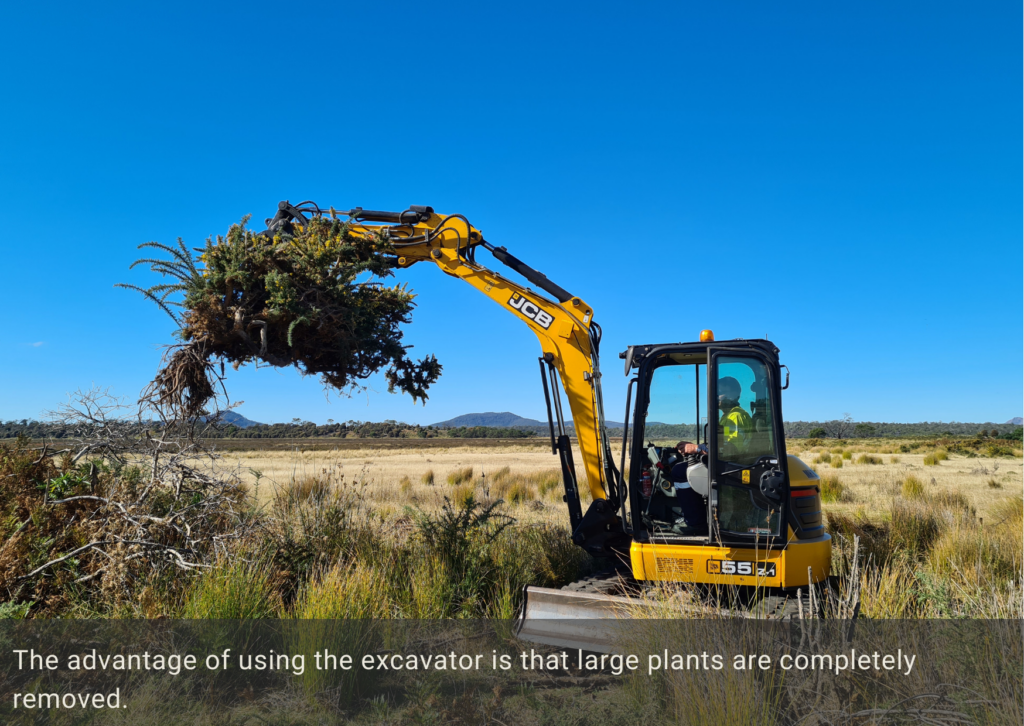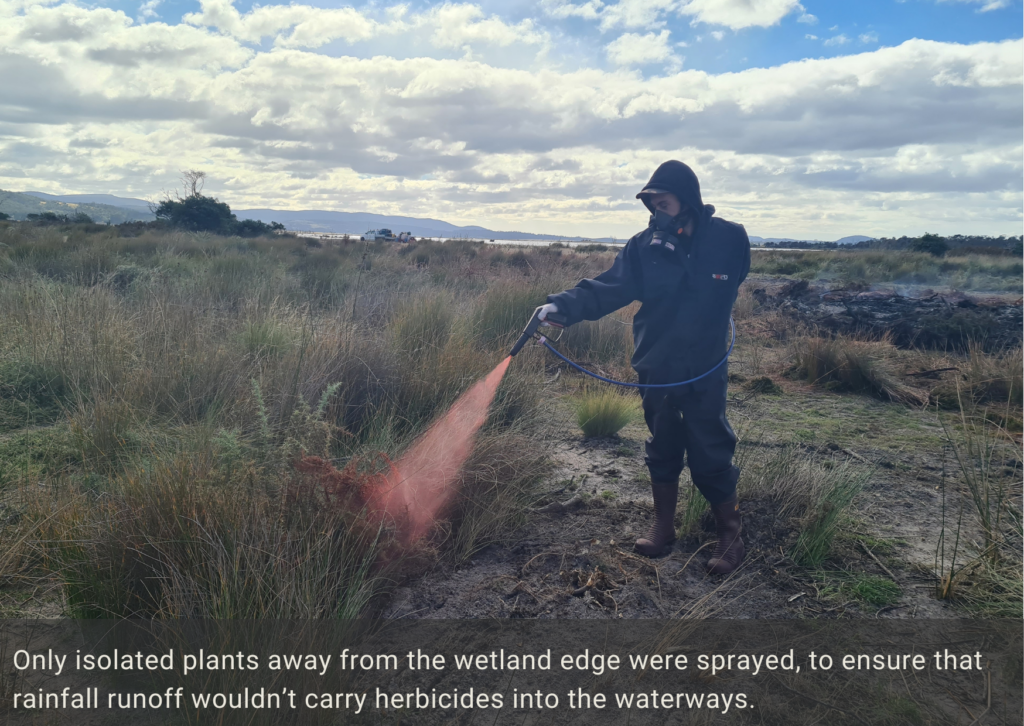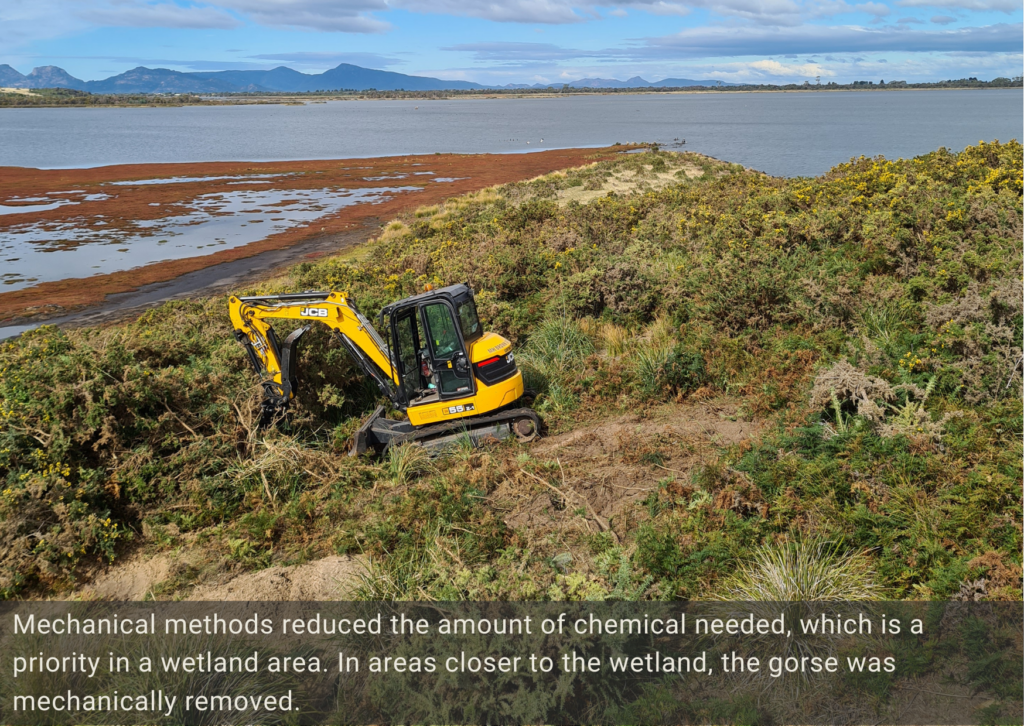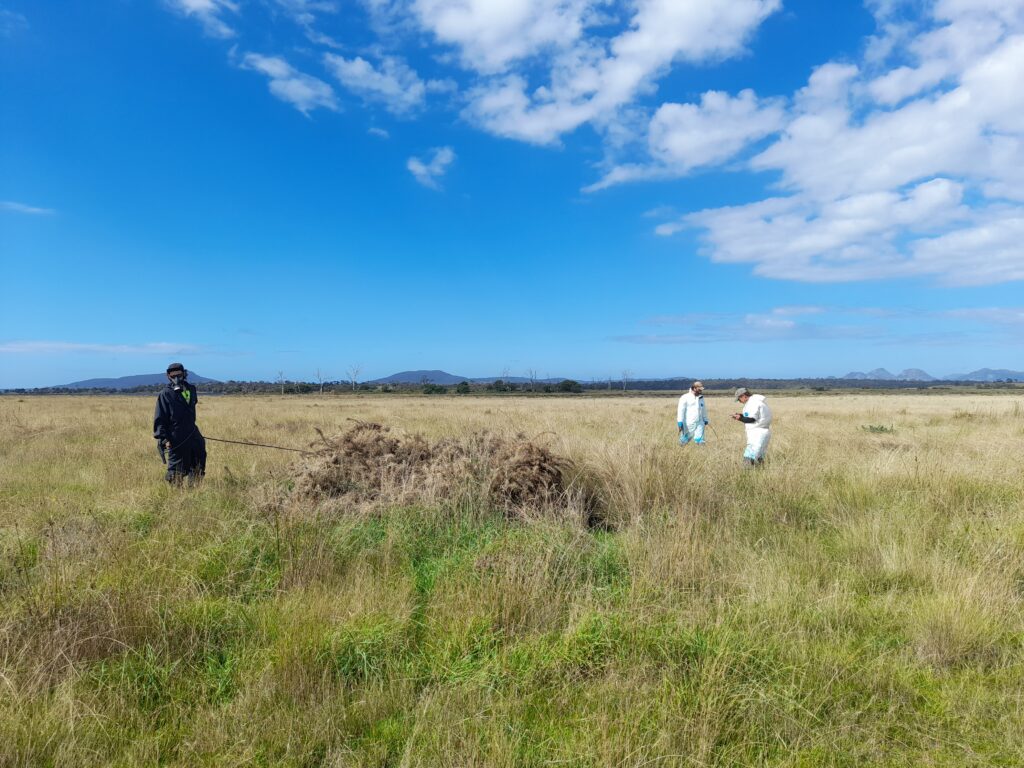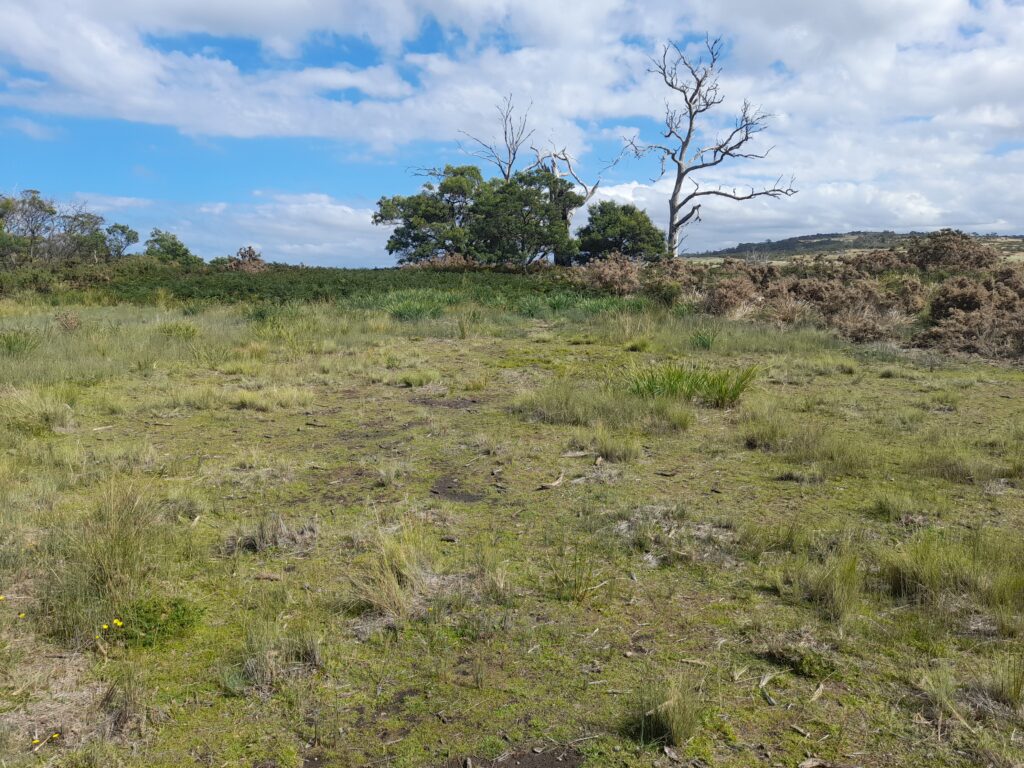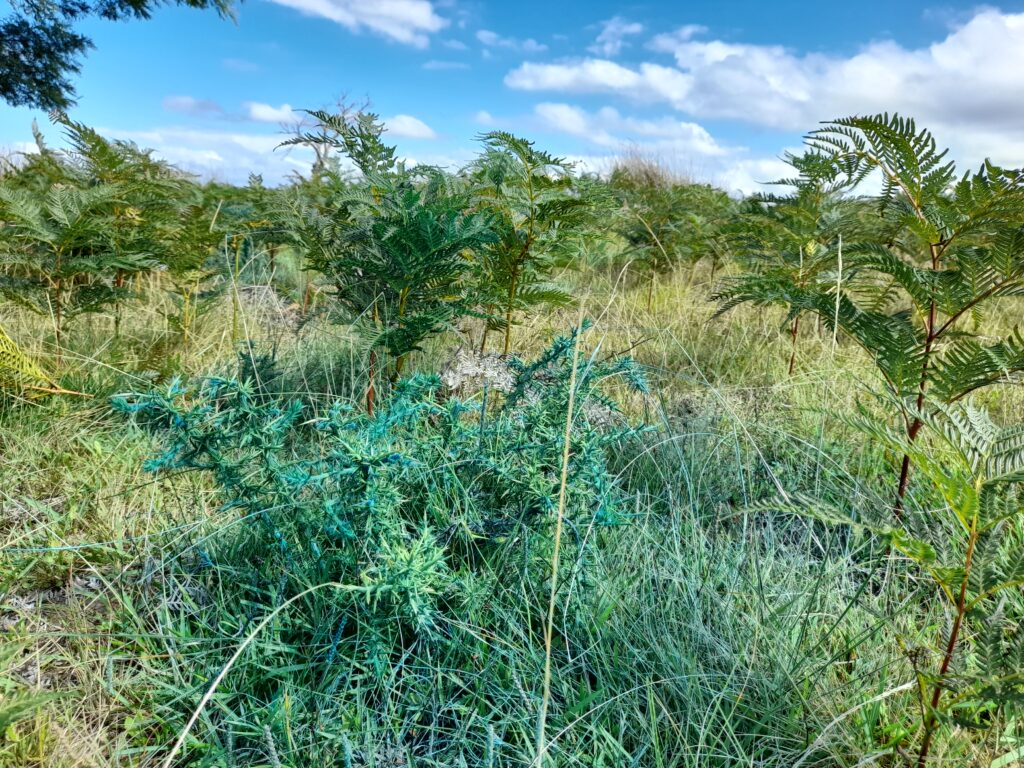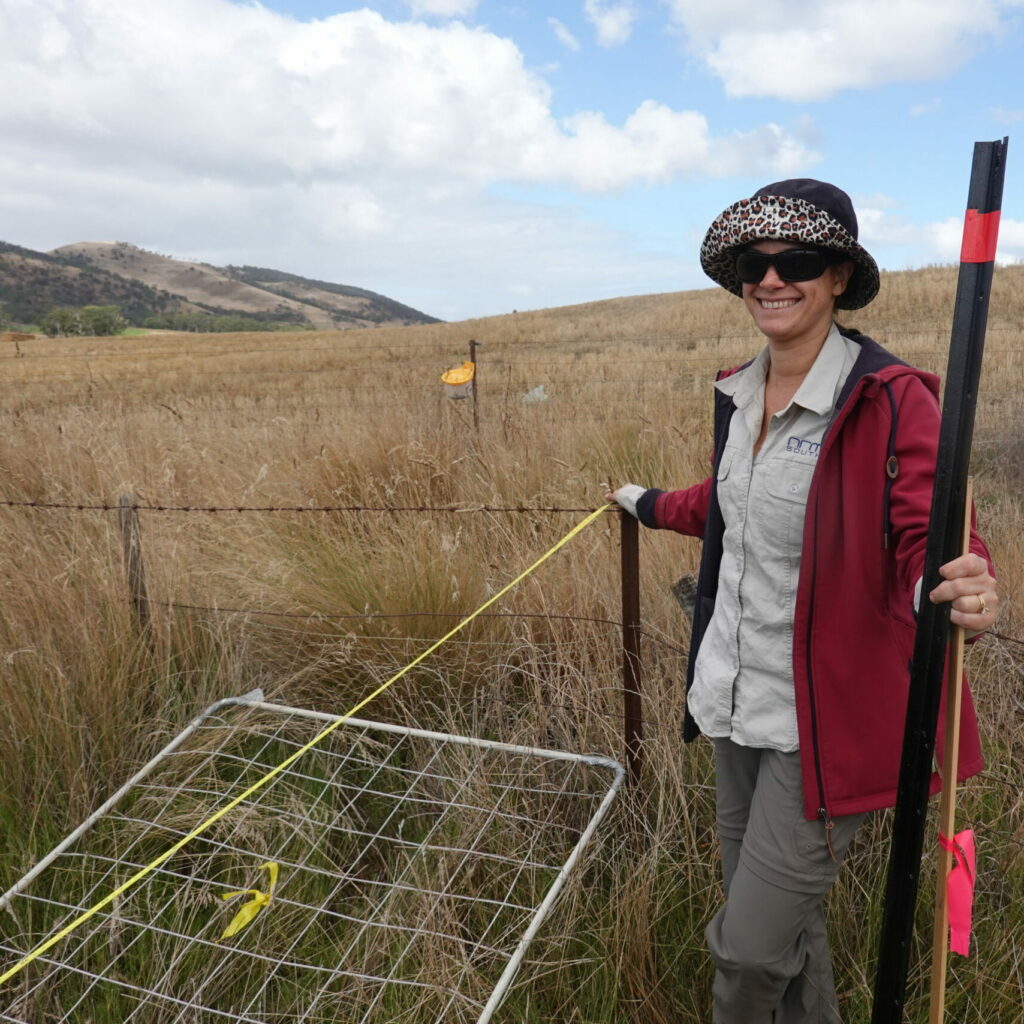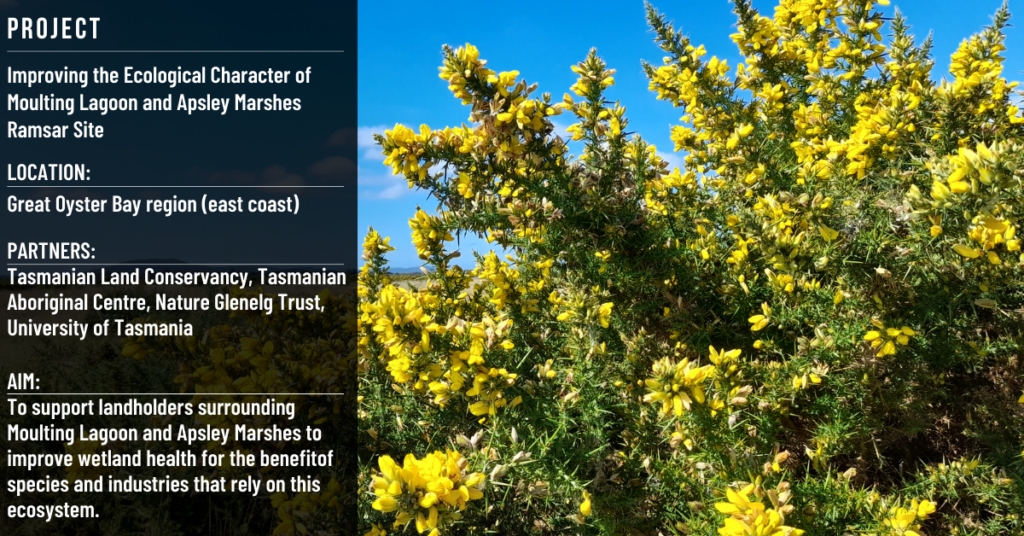
Gorse is a habitat-altering weed that causes serious issues for agricultural landscapes and in sensitive natural environments across large swathes of Tasmania. Originally introduced as a hedge plant in the 1800s it quickly spread out of control. Once established, gorse is very difficult to eradicate.
As part of our work to improve the ecological character of Moulting Lagoon and Apsley Marshes, we are working with project partners to eliminate weeds such as gorse from 550 hectares of private land adjacent to the wetlands. Gorse is a particular concern for these sensitive sites as it displaces native species and reduces habitat availability for native fauna.
On-ground activities began at the site in 2020 and, by the end of June 2021, project partners had completed gorse control across 296 hectares of land adjacent to Moulting Lagoon. The Tasmanian Land Conservancy carried weed control across 130 hectares, while Aboriginal social enterprise pakana Services (who have worked with NRM South on multiple land management projects over the years) completed work across 166 hectares.
Due to the sensitive nature of the site, and the extent of gorse infestations in some areas, pakana Services used several different gorse control methods;
In February 2022, ten months after the initial treatment, Laurel McGinnity (Senior Project Officer with NRM South) and pakana Services personnel returned to the property to review the success of the initial control and plan follow-up control works. The earlier control work appears to have been a success, and in areas where the gorse buster had been applied there was little to no re-growth, particularly in the trial section. Die off from herbicide application was also very successful.
Gorse produces a notoriously difficult seed bank, with each mature plant able to produce a huge volume of seeds with a water-resistant coating, allowing them to remain dormant in the soil for up to 30 years. They can also shoot seeds up to 5 metres, which mean they can spread rapidly, particularly when growing along water courses. In the coming months, we’ll be carrying out further gorse control work alongside a watercourse which runs through the project area. Removing gorse bushes growing on the edges of the watercourse will help to prevent the spread of seed into Moulting Lagoon, which is a Ramsar listed wetland and home to many rare and significant plant and animal species.’ – Laurel McGinnity, NRM South.
Over the next 12 months pakana Services will carry out follow-up control works across the project area and specifically at the previous mechanical control sites to treat any re-growth. The removal of the gorse will promote natural regeneration of native local plant species. pakana will also prioritise weed control at two proposed revegetation sites.
As part of the project, Technical Forest Services will undertake up to 17 ha of revegetation within the project area. The weed control undertaken by pakana Services will play a vital role in the success of these works. Weeds are a major threat to the success of any revegetation project as they compete with establishing plants for light, nutrients and water and can significantly reduce the growth of the desired plants.
This program is being delivered by NRM South in partnership with the Tasmanian Land Conservancy, the Tasmanian Aboriginal Centre, Nature Glenelg Trust and the University of Tasmania, through funding from the Australian Government’s National Landcare Program.
